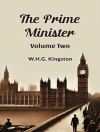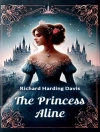In ‘Bad Hugh, ‘ Mary Jane Holmes masterfully intertwines themes of morality, society, and the complexities of human behavior through the captivating tale of a young man grappling with his troubled identity. The novel adopts a realist literary style, rich in character development and keen psychological insight, making it a significant work within the American Romanticism context of the late 19th century. Holmes crafts vivid narratives and dialogues that expose the inner turmoil of her protagonist, while also reflecting the broader societal concerns of her time, particularly the repercussions of individual choices and moral failings. Mary Jane Holmes, a prolific author renowned for her exploration of feminine perspectives and social issues, drew on her own experiences growing up in a conservative environment to portray the struggles of individuals like Hugh. Holmes’ adeptness in illuminating the moral dilemmas faced by her characters not only underscores her understanding of human psychology but also her compassion for those ensnared in societal expectations. Her background and the moral debates of her time surely influenced her narrative style, creating a nuanced portrayal of her characters’ flaws and virtues. ‘Bad Hugh’ is essential reading for those interested in psychological depth within literary works, as well as for readers intrigued by the moral complexities of human nature. Holmes’ compelling narrative invites readers to reflect on their own ethical standings while remaining engrossed in a rich and turbulent story. This book not only provides an engaging literary experience but also fosters critical thought regarding societal norms and individual choices.
Sobre o autor
Mary Jane Holmes (1825-1907) was a prolific American author, revered for her enthralling domestic novels that captivated readers in the post-Civil War era. Born in Brookfield, Massachusetts, Holmes specialized in crafting melodramatic tales that often explored themes of love, social status, and morality, reflecting the genteel society of her time. She was one of the bestselling authors of her day, with a writing career that spanned over four decades, during which she penned some 39 novels and numerous short stories. One of her notable works, ‘Bad Hugh’ (1885), exemplifies Holmes’s literary style, interweaving romance with complex moral underpinnings, thus inviting readers to contemplate the societal norms of her period. Holmes’s narratives were characterized by their strong, occasionally controversial, female protagonists and elaborate plotlines. Despite being less recognized in contemporary literary discourse, her works offer valuable insight into 19th-century American life and the early development of romantic fiction in the United States. Mary Jane Holmes remains a significant, though often underappreciated, figure in the pantheon of 19th-century American women writers.












